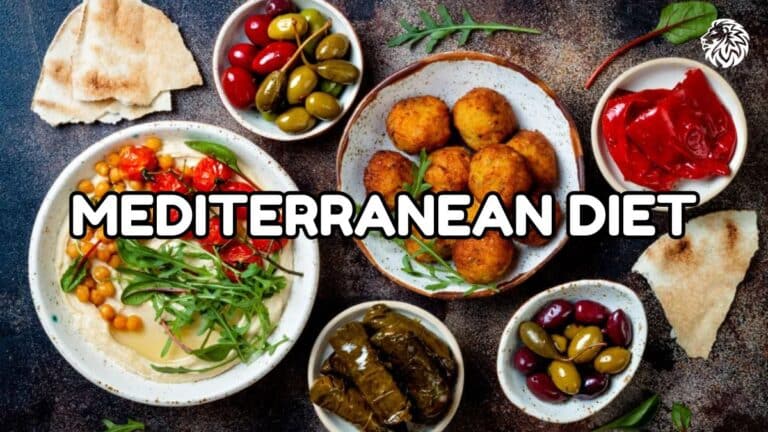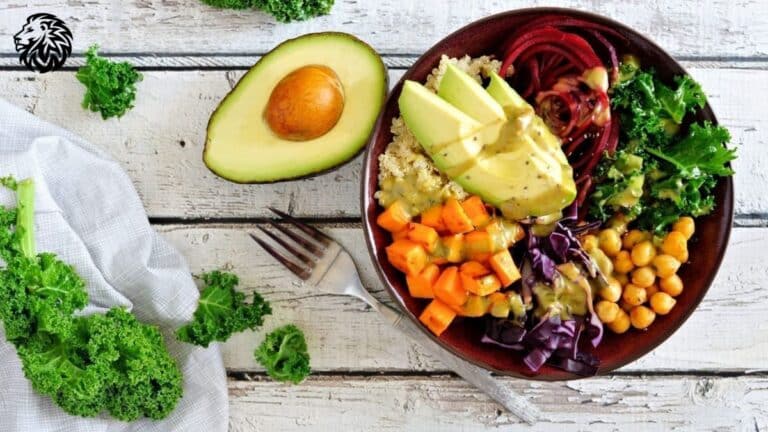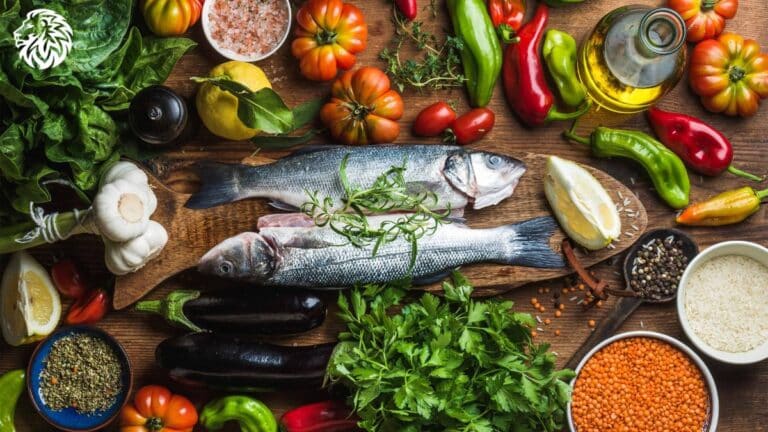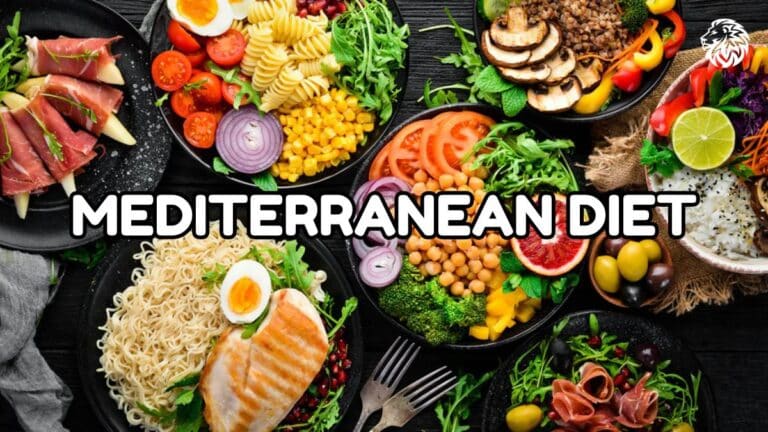Exploring Mediterranean Diet Cheese
Importance of Cheese in Mediterranean Diet
Cheese is a superstar in the Mediterranean Diet, sharing the dairy spotlight with yogurt. We’re talking the delicious stuff from goats and sheep, in moderation of course—about 2-3 servings on the daily (Olive Tomato). Besides being a tasty treat, cheese is packed with perks for your health.
There’s solid research backing the cheesy goodness. Eating cheese is oddly linked to lower risks of heart-related woes, like cardiovascular disease and type 2 diabetes (PubMed Central). Plus, it may even help keep bones intact, dropping fracture risk by 5% per 30g a day (PubMed Central).
Different Types of Mediterranean Cheeses
The Mediterranean region is like a cheese treasure chest, loaded with flavors and textures just waiting to make your taste buds dance. Here’s the scoop on some crowd favorites you might wanna squeeze into your Mediterranean routine.
Goat Cheese
Goat cheese, with its zesty kick, is a Mediterranean must-have. It’s lower in fat and lactose than your standard cow stuff, so it’s a solid choice if lactose isn’t your friend. This cheese comes loaded with protein, calcium, and vitamin A—important bits for keeping bones strong and your overall health in check.
Sheep Cheese
Enter sheep cheese, like the famed Pecorino. Richer in flavor than goat cheese, it’s a nutrient powerhouse. High in protein and fat, it’s like a little energy bar in cheese form. Bonus: it’s rich in vitamins and minerals like calcium, vitamin B12, and zinc.
| Cheese Type | Source | Protein (g) | Fat (g) | Calcium (mg) | Vitamin A (IU) |
|---|---|---|---|---|---|
| Goat Cheese | Goat Milk | 5 | 6 | 40 | 100 |
| Sheep Cheese | Sheep Milk | 7 | 7 | 52 | 150 |
Data sourced from Olive Tomato
Feta Cheese
Feta is probably the first cheese that comes to mind when you think Mediterranean. Typically made from sheep’s milk or a blend with goat’s milk, it’s tangy and salty, and lower on the fat and calorie scale—a win if shedding pounds is on your agenda. Discover how to weave Feta into your meals with our Mediterranean diet meal plan.
Parmigiano-Reggiano
Parmigiano-Reggiano, aka Parmesan, is a hard, cow’s milk cheese with a rich, nutty taste. It’s packed with protein and calcium, key for strong bones. Whether you sprinkle it on salads or pasta or just nibble on it solo, it’s a tasty addition. For mouth-watering Parmesan ideas, peek at our Mediterranean diet dinner recipes.
These Mediterranean cheeses aren’t just about flavor—they’re loaded with nutrients to round out your diet. Check out our Mediterranean diet food list for more culinary pairings that work magic with these cheeses.
Throwing in these traditional Mediterranean cheeses grants you both a slice of rich heritage and the health boosts you’re hunting for. Up for the cheese challenge? Check out how to jump into the Mediterranean Diet with our guide.
Incorporating Cheese in Your Diet
Cheese in the Traditional Mediterranean Diet
Cheese is a big deal in the Mediterranean diet. More than just a tasty treat, it’s a health booster. It’s like a ritual, eaten almost daily. Regular fat cheese and yogurt are the go-tos here, with goat and sheep cheese stealing the spotlight. Folks suggest having it 2-3 times a day (Olive Tomato).
Want to sneak cheese into your meals? Throw it on salads, munch it with fruits and nuts, or cook it into your dishes. Think about a Greek salad with chunks of feta or some Italian fare with Parmigiano-Reggiano tossed over pasta. For tasty inspiration, peek at our Mediterranean diet recipes.
| Cheese Type | Common Dishes | Consumption Tip |
|---|---|---|
| Feta | Greek Salad, Saganaki | Great crumbled over salads |
| Parmigiano-Reggiano | Pasta, Risotto | Perfect for grating or shaving |
| Goat Cheese | Cheese Platter, Stuffed Peppers | Sweet combo with honey and fruits |
| Sheep Cheese | Manouri, Halloumi | Grills up nicely or bakes well |
Health Benefits of Cheese Consumption
Cheese isn’t just tasty; it’s a health champion in the Mediterranean league. It helps fend off heart disease, strokes, and even type 2 diabetes (Fresco Cheese). Loaded with protein, vitamins like A and B12, and minerals like calcium, it’s a bone and teeth ally.
Curious about more? Some studies showed that people munching cheese have slightly lower chances of kicking the bucket from anything, including heart woes (PubMed Central).
| Nutrient | Benefits |
|---|---|
| Protein | Repairs and strengthens tissues |
| Vitamin A | Boosts the immune system and eyesight |
| Vitamin B12 | Key for blood and brain health |
| Riboflavin | Helps keep your energy levels up |
| Phosphorus | Important for bone strength |
| Zinc | Fortifies the immune system |
| Calcium | Vital for strong bones and teeth |
Bringing cheese into your Mediterranean meal game ups both nutrition and taste. Whether slimming down or just feeling healthier is your goal, embracing the right cheese can make all the difference. For tips to kick off this tasty and healthy lifestyle, check out our guide on how to start the Mediterranean diet.
Picking the Perfect Cheese
Dipping your culinary toes into the Mediterranean Diet? Choosing the perfect cheese can ramp up the taste factor and the health perks. Let’s shop the cheese aisle together.
Goat and Sheep Cheese
These cheeses aren’t just for fancy charcuterie boards. Goat and sheep cheeses are staples in the Mediterranean Diet, celebrated for their bold flavors and health boosts. Regular munching on these varieties—up to 2-3 portions a day—can bring some tasty benefits (Olive Tomato).
- Goat’s Milk Cheese (Chevre): This cheese brings a tangy kick, serving as both semi-firm blocks and creamy spreads. It’s your go-to for slathering on toast, stirring into dips, or tossing into salads. Their flexible nature makes them a staple across countless Mediterranean diet recipes.
| Cheese Type | Taste | Texture | Best Uses |
|---|---|---|---|
| Goat’s Milk Cheese | Tangy | Semi-firm to soft | Spreading, dips, salads |
| Sheep’s Milk Cheese | Tangy, smooth | Firm to crumbly | Salads, snacks, garnishes |
Feta and Parmigiano-Reggiano
Meet Feta and Parmigiano-Reggiano, the cheeseboard rockstars of the Mediterranean scene, each adding their own pizzazz.
- Feta Cheese: With its roots running deep, feta is a classic born mostly from sheep’s milk and some goat’s milk. This tangy treat is optimal for crumbling over salads, blending into dips, or stuffing into burgers (BHG).
| Cheese Type | Origin | Taste | Best Uses |
|---|---|---|---|
| Feta | Greece | Bright, tangy | Salads, dips, burgers |
- Parmigiano-Reggiano: Known as Parmesan’s grown-up cousin, it’s aged for minimum of two months, giving it a hard, rich profile perfect for grating over pasta, soups, and risottos (BHG). This one adds an authentic touch to your meals.
| Cheese Type | Origin | Age | Best Uses |
|---|---|---|---|
| Parmigiano-Reggiano | Italy | 2 months | Pastas, soups, risottos |
If you’re on a mission to drop a few pounds with the Mediterranean Diet, these cheeses will liven up your menu. Discover ways to integrate them into your meals with our Mediterranean diet meal plan.
Choosing the right cheese doesn’t just add zest; it also aligns with the health edge of the diet. For more insights, pop over to our article on Mediterranean diet benefits.
Nutritional Value of Mediterranean Cheeses
Cheese isn’t just a tasty morsel; it’s a big deal in the Mediterranean diet, packing in a bunch of essential nutrients your body loves. Let’s get into what makes Mediterranean cheeses a nutritional treasure trove, especially the protein and nutrient punch they pack, along with the calcium and vitamins they offer.
Protein and Nutrients in Cheese
Say hello to cheese, your protein BFF! It’s basically your go-to for a protein boost, which is key for fixing up and building those muscles. Plus, it’s got your back with a bunch of other important stuff your body needs to tick along.
| Nutrient | Amount per 100g |
|---|---|
| Protein | 25g |
| Vitamin A | 200 IU |
| Vitamin B12 | 1.5mcg |
| Riboflavin (Vitamin B2) | 0.3mg |
| Phosphorus | 500mg |
| Zinc | 3.5mg |
These goodies not only make you feel fuller for longer but are also a top pick if you wanna watch your weight. Fancy more ways to sneak cheese into your meals? Check out our mediterranean diet meal plan.
Calcium and Vitamin Content
Calcium takes the cake in the cheese department, hooking you up with strong bones and pearly whites. The vitamin lineup in cheese doesn’t just stop there; it gives your eye health, immune system, and skin a thumbs up as well.
| Nutrient | Amount per 100g |
|---|---|
| Calcium | 750mg |
| Vitamin A | 200 IU |
| Vitamin B12 | 1.5mcg |
| Riboflavin (Vitamin B2) | 0.3mg |
| Phosphorus | 500mg |
| Zinc | 3.5mg |
These numbers show off cheese’s awesome mix of calcium and vitamins, making it the Mediterranean diet’s MVP for anyone looking to drop a few pounds or just get healthier. Wanna know how cheese can help your heart and fend off diabetes? Give Fresco Cheese’s article a look.
With all these perks, adding Mediterranean cheese to your menu can be a yummy health boost. If you’re curious about different cheese styles and how to savor them in your meals, hop over to our mediterranean diet food list.
Cheese and Health Outcomes
Association with Reduced Risk Factors
Cheese isn’t just a tasty addition to sandwiches and pizzas – it’s a cornerstone of the Mediterranean diet and comes loaded with perks that would make even the sternest doctor smile. Turns out, munching on cheese can be tied to waving goodbye to the risk of certain chronic nasties. If you’re eyeing the Mediterranean diet to shed some pounds or just boost your health game, cheese might just be your new best bud.
Cheese is like that friend who brings something to the party—a pack of proteins, a dollop of calcium, and a heap of vitamins. Research backs this friend up, too. People who dig into cheese regularly show a lower risk for things like cardiovascular disease, heart issues, stroke, and good old type 2 diabetes (PubMed Central’s thoughts). Basically, if you’ve got cheese hanging out in your diet, these stats suggest you’re doing something right.
Below is a snapshot of how cheese might keep some health boogeymen at bay:
| Condition | Relative Risk Reduction (RR) |
|---|---|
| Cardiovascular Disease | 0.92 |
| Coronary Heart Disease | 0.92 |
| Stroke | 0.93 |
| Type 2 Diabetes | 0.93 |
Those who lean on cheese from goats and sheep have a double win—plenty of nutrients without tipping the scale. For a closer look at how this golden goodie tags along in the Mediterranean diet, check out the lowdown on the Mediterranean Diet for Weight Loss.
Impact on Mortality and Diseases
The Mediterranean diet, with cheese riding shotgun, is linked to snipping down mortality rates and running interference on certain diseases. Going for this diet might just sprinkle your years with longevity and joy, thanks to its focus on greens, good fats, and just-right dairy.
According to Harvard Health, win-battles against heart disease, beat the metabolic beat, flick off diabetes, fend off certain cancers, and sideline depression are some of the goodies this diet can offer. Plus, if you’re clocking a few decades, it helps you stay strong, both mentally and physically.
Cheese, oh glorious cheese, does wonders by keeping your bones strong, backing your metabolism, and championing heart health. For more juice on this golden diet, have a gander at our piece on the benefits of the Mediterranean diet.
All in all, adding cheese into the Mediterranean mix could lead to some solid health scores. With a bit of wrangling to pick the best slices and nibbling just the right amount, you’re bound to savor both taste and health. For more tasty ideas, go snoop around our Mediterranean diet recipes and Mediterranean diet dinner recipes.
Sustainable Aspects of Cheese Consumption
Environmental and Economic Impact
Alright, so you’re pondering that Mediterranean Diet, wondering how cheese fits in without wrecking Mother Earth, right? Let’s sprinkle some tasty facts on this. A 2019 Italian study found that folks munching on the traditional Mediterranean Diet (let’s call it MD) leave a much lighter mark on the environment than those chomping through the usual Italian menu NCBI.
You see, the current Italian food scene, with its love for meats and sugar-packed treats, is puffing out 142% more carbon compared to the good ol’ MD. Swapping over to the Mediterranean side could seriously slash those carbon emissions and cut down on gobbling up resources. Here’s a quick peek:
| Metric | Standard Italian Enjoyment (CIFP) | Mediterranean Diet (MD) |
|---|---|---|
| Carbon Footprint (kg CO2 eq) | 65.4 | 27 |
| Environmental Impact | 133% more | Baseline |
| Human Health Impact | 100% more | Baseline |
| Economic Impact | 59% more | Baseline |
Going the Mediterranean way could chop off a hefty 2000 kg of CO2 per person each year—huge for helping curb climate change!
Carbon Footprint and Resource Savings
Thinking Mediterranean cheeses like goat, sheep, or feta? You’re on the right track for green living! Making these cheeses doesn’t cloud the skies as much as those super-processed cheese snacks do. Plus, whipping out those snacks means blowing through way fewer resources.
And hey, it’s not just about hugging trees—there’s cash to be saved too. The same Italian brainiacs say this shift could slash $3.2 billion off Italy’s bills every year. That’s about $53.35 saved for you annually! NCBI.
Picture this:
- Lighter Carbon Footprint: Breathing easier with fewer emissions.
- Wallet Friendly: Save more dough while eating cheese.
- Resource Savvy: Less wastage of minerals and fossils.
If you’re just getting started or hunting for mediterranean diet recipes and a mediterranean diet meal plan, remember, each cheese-loving choice nudges us toward a happier planet. Hop over to our mediterranean diet benefits page for a full lowdown.
Adding Mediterranean cheese to your plate does more than boost your wellness; it sprinkles some kindness on our economy and the environment too. Need some tips on merging these cheeses into your grub? Swing by our mediterranean diet food list or mediterranean diet for weight loss for more tasty insights.







